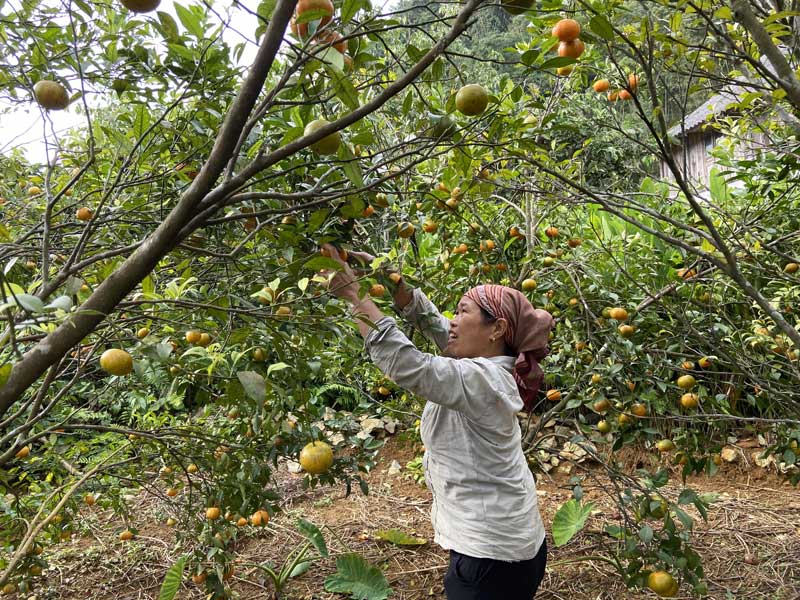


Growers here only use safe, natural farm inputs with no harmful chemicals on tangerine farms.
Though tangerine trees in Thung Khe began to bear fruits only four years ago, the trees have proved their high economic value, providing extra income to the locals.
 Farmers in Thung Khe village, Thung
Khe commune (Mai Chau) pick tangerines in their gardens.
Farmers in Thung Khe village, Thung
Khe commune (Mai Chau) pick tangerines in their gardens.
Since 2013, authority of Thung Khe commune has encouraged local farmers to shift from low-yield crops to tangerine, which suits the local soil and climate conditions.
The farmers has bought saplings from other localities, such as Hoa Binh’s Cao Phong district and Ha Giang province and later been trained by local agriculture promotion officals on how to use fertiliser and take care of the tangerine.
Biofertiliser and natural farm inputs are used in all tangerine areas so the tangerine has been favoured by consumers.
At this time, tangerines are being sold by farmers along Highway 6. It is also purchased in a large quantity by traders from Mai Chau, Tan Lac, Hoa Binh City. The tangerines fetch 20,000 VND per kg at the farm and 25,000 – 30,000 VND per kg at the market.
Tangerine areas in the commune have been expanded to 5 hectares, including 2 hectares being in harvest season, said Chairman of the Thung Khe commune’s People’s Committee Ha Van Hung. Many local households have got better off thanks to the fruit, earning 60 million – 100 million VND annually.
The commune plans to continue encouraging more farmers to shift to high-yield crops like tangerine and provide technical training for farmers to boost the fruit’s yield and quality.
It will also coordinate with local authorities and agencies to seek broader market for the tangerine./.